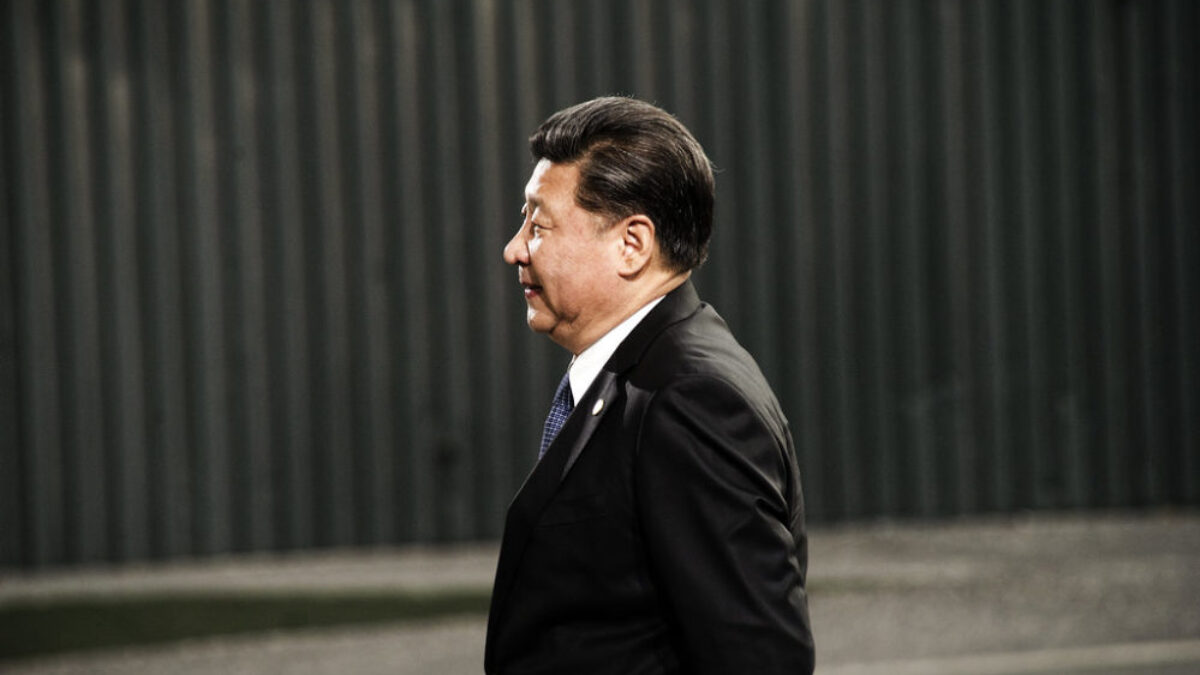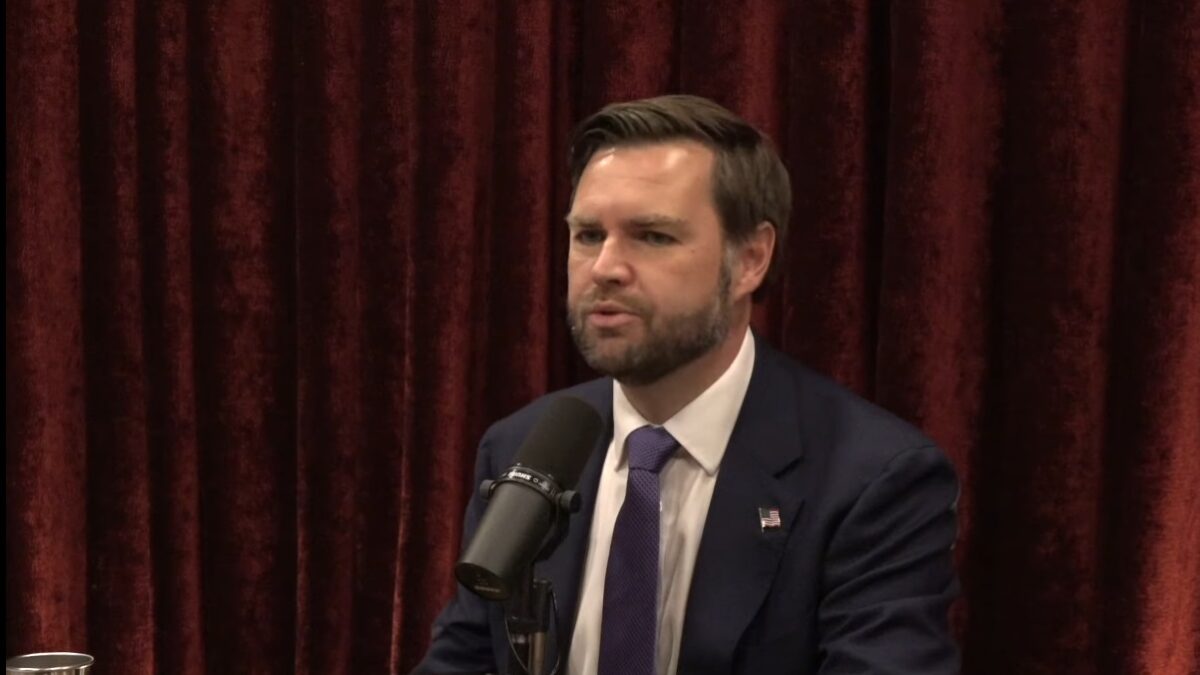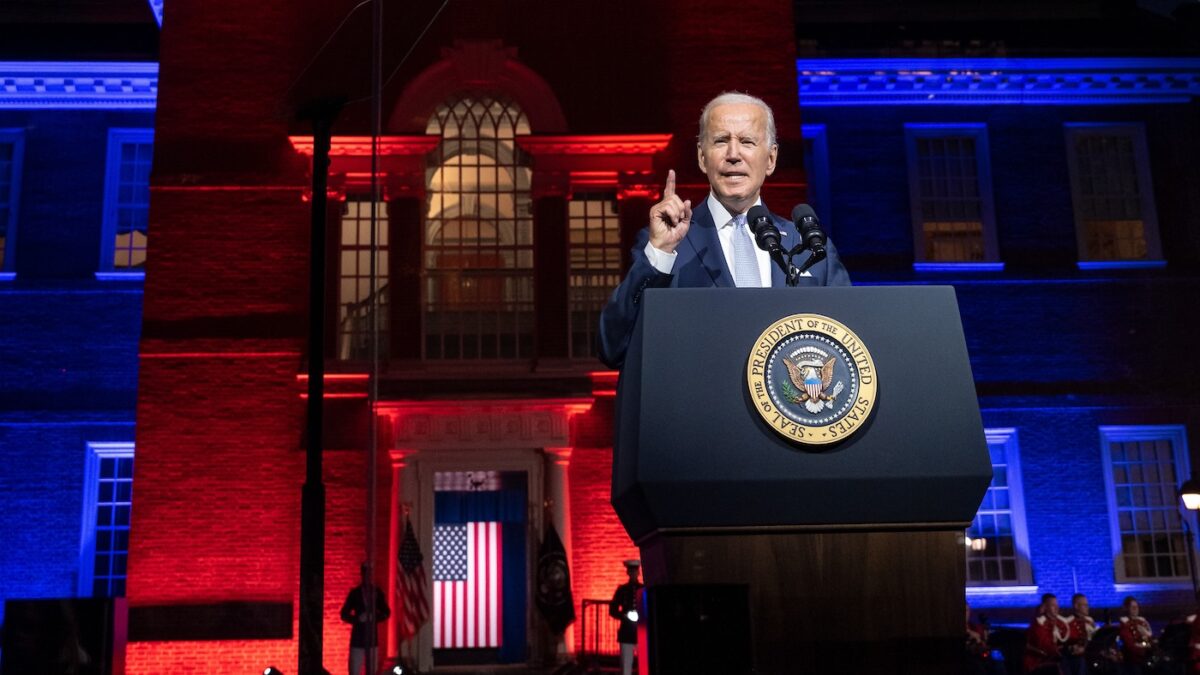
A new report indicates the Biden administration lobbied a Democrat senator to water down language in a bill blocking the importation of Uyghur forced-labor goods from China, and it’s damning for Democrats.
According to a report in The Washington Post, Deputy Sec. of State Wendy Sherman communicated to Sen. Jeff Merkley, D-Ore., in October that the Uyghur Forced Labor Prevention Act was undesirable. The bill, among other things, would make American importers demonstrate that goods obtained in Xinjiang province were not made with forced labor. The province is where the camps are located.
Sherman claimed the administration seeks “a more targeted and deliberative approach,” as columnist Josh Rogin put it, to determine what should be prohibited from the country. The bill, which Merkley co-sponsored, is expected to be voted on sometime this week in the House after Senate Democrats blocked it. It passed in the House last September and senators approved it unanimously in July.
The Biden administration reportedly took issue with the bill’s key importation provision. Major corporations, such as Nike who has dodged The Federalist’s prior requests for comment, have also in the past. Coca-Cola and Apple, which also heavily rely on China for goods, have lobbied hard to try and kill the bill. Calvin Klein, Adidas, Costco, H&M, Patagonia, and Tommy Hilfinger did too.
The Biden family also has large personal financial interests in China. Joe Biden, his brother, and his son Hunter have received millions of dollars from Chinese interests. Hunter Biden helped the Chinese government take over world supplies of the important metal cobalt.
“It isn’t partisan or in any way controversial for the U.S. to be unequivocally, resoundingly opposed to genocide and slave labor,” Merkley told Rogin. “The Senate passed this legislation in July, and it’s time to get it over the finish line.”
Evidently, getting the bill “over the finish line” might not be as easy as Merkley would like. Biden administration officials may have claimed earlier this year that they will be “putting human rights back at the center of U.S. foreign policy,” but this much remains to be seen.
GOP Calls For Action
Speaking on the matter, Texas Republican Sen. Ted Cruz, who co-sponsored the Uyghur act in 2020, told me he thinks lawmakers are not doing enough to oppose China’s authoritarian regime. He voiced concern with Democrats prioritizing a climate agenda, given China exports a significant amount of solar panels to the United States. There are “Biden administration officials who fear the bill would torpedo climate negotiations with the Chinese government,” according to congressional sources who spoke to The Washington Free Beacon.
“Democrats are willing to be complicit in the ongoing genocide of the Uyghurs by the Chinese Communist Party because it advances their green ideology,” said Cruz. “The CCP has built more than 200 million square feet of concentration camps and imprisoned untold numbers of slave laborers. Tragically, [Biden climate envoy] John Kerry is the customer of the year for the Chinese concentration camps.”
Like Cruz, top GOP House leadership says Biden and the Democrats have not taken adequate steps to punish China for its camps and initial concealment of COVID-19. Minority Whip Steve Scalise, La., the number two Republican in the House, expressed this sentiment to me.
“President Biden is bowing to China at every opportunity,” said Scalise. “He is failing to hold the Chinese Communist Party accountable for its gross human rights abuses against the Uyghurs. China must also answer questions about COVID-19’s origin, but the Biden administration refuses to confront President Xi Jinping about his government’s lack of transparency.”
Florida Republican Sen. Marco Rubio reintroduced the human rights bill last week. Rubio’s attempts to attach the bill to the National Defense Authorization Act, which passes annually, angered Sen. Majority Leader Chuck Schumer, D-N.Y. He called the move a “poison pill,” as reported by the Beacon. Rubio thinks Schumer’s objections are a result of the left’s unwillingness to take on China.
“The Biden Administration is actively working to stop passage of an anti-slavery bill targeting #China’s genocide,” Rubio tweeted last week, sharing Rogin’s piece. “That is why they don’t want my amendment on this to get on the defense bill.”
I contacted Schumer’s office to understand if Rubio’s allegation is a fair characterization but did not hear back.
The Biden Administration is actively working to stop passage of an anti-slavery bill targeting #China’s genocide
That is why they don’t want my amendment on this to get on the defense bill https://t.co/LSZVCKe5aE
— Marco Rubio (@marcorubio) December 3, 2021
While a spokesman for the state department told the Post it “is not opposing this amendment” and “share[s] the Congress’ concerns about forced labor in Xinjiang,” it remains unclear how this can be validated. On Friday, Press Secretary Jen Psaki said the White House is “quite concerned” about the genocide occurring in China, adding, “We need to stand in solidarity with the Uyghurs, with religious minorities all over the world, to make sure that they can live in security and dignity.”
Democrat Inaction
If the Biden administration supports the human rights measure Rubio reintroduced, why is it privately trying to get Democrats to remove the most consequential provision? And why is this the same provision that some of the wealthiest U.S. companies also oppose?
Upon the bill’s passage in the House last year, Democrat Speaker Nancy Pelosi said, “These abuses must end now.” A year has gone by and Americans wait for the United States to send a clear message that it will not depend on China’s slave labor for goods. Even if Rep. Jim McGovern’s, D-Mass., bill clears the House, it will likely have a long way to go before being adopted.
All the while, corporations drunk on globalization outsource jobs to a country that is thought to acquire more than 80 percent of its cotton from forced labor, according to one report by the Center for Strategic International Studies. There are estimated to be millions of Uyghurs and other groups in the genocidal camps and, just last week, an investigative panel in the U.K. released classified Chinese government documents indicating General Secretary Xi Jinping played a major role in them.
Dr. Adrian Zenz, a senior fellow in China studies at Victims of Communism Memorial Foundation, described the following about the material in what has been dubbed “The Xinjiang Papers.” The papers are hosted by the Uyghur Tribunal, which published the leaked material and is comprised of researchers and lawyers.
The material provides substantial evidence linking numerous aspects of Beijing’s crackdown in Xinjiang to explicit statements and demands made by central government figures in 2014, including: Mass internments in re-education camps, Poverty alleviation through coercive labor transfers, ‘Optimizing’ the ethnic population distribution by increasing Han population shares, Criminalizing customary religious practices, Forcing hundreds of thousands Han officials to ‘become family’ with ethnic populations, [and] implementing Chinese language-focused education in centralized boarding schools.
If Biden and his political allies intend to communicate a serious foreign policy on China, passing this bill is a start. Given the administration has capitulated on numerous situations — not limited to the Afghanistan withdrawal, green-lighting a major Russian pipeline, and U.S.-Mexico border policy — now is the time to start having a backbone on the world stage. Now is the time to have a backbone for the common good.
China’s Communist Party is a grave threat to the world. We learned this further from the country’s coronavirus handling. Backing international human rights means taking aim at China.
Passing a forced labor prevention act should be uncontroversial for a nation that ostensibly prides itself on law and order. But Democrats have not taken meaningful, collective actions to get it through. It’s a way to pressure Xi and his horrifying regime. The ball is in their court.
Update, Dec. 8: A spokeswoman for Campbell’s Soup Company sent the following statement, and this article has been edited accordingly: “Campbell is mentioned in your story, however we did not oppose the Uyghur Forced Labor Prevention Act. Former Campbell subsidiaries in the Asia-Pacific region previously sourced a small amount of ingredients from Xinjiang. We divested those operations in 2019. Because we no longer source from the region, we contacted legislators to request that our name be removed from the legislation.”







